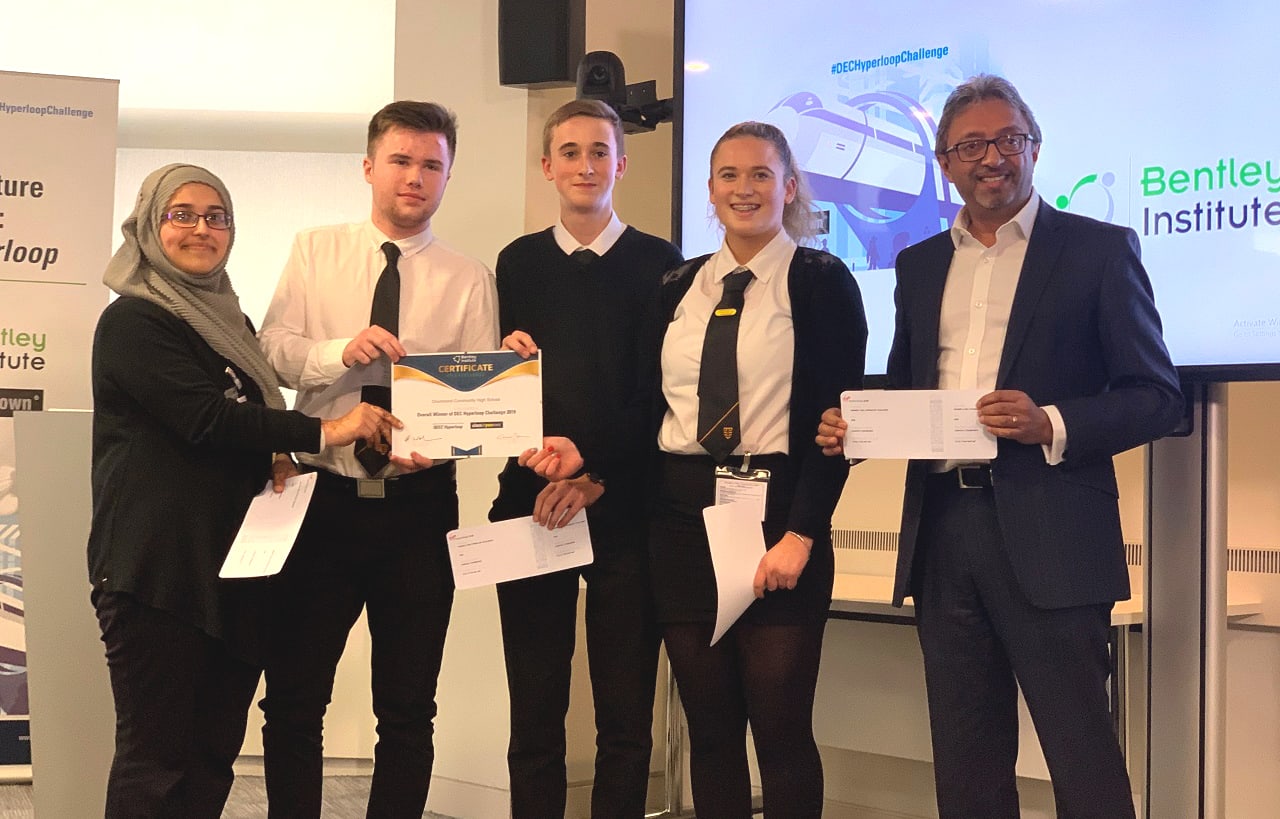Bentley has unveiled Dr Nabil Abou-Rahme (above) as chief research officer for Bentley Institute’s Digital Advancement Academies, a newly created role.
Dr Abou-Rahme joins Bentley from the global consultancy firm Mott MacDonald, where he was actively involved in digital transformation, most recently as head of smart infrastructure and global practice leader for data science, and prior to that, as divisional director for intelligent transport.
He will work from Bentley’s London offices, and will lead Bentley’s efforts in digital advancement research, collaborating with government, university and industry visionaries to promote innovative solutions for advancing infrastructure.
His career began with applied research in network optimisation and control at the Transport Research Laboratory, where he went on to manage research teams and complete a PhD.
Subsequent technical highlights from his consultancy roles include specifications for the EU ITS Directive, implementation of bank-led contactless payment systems on public transport in South Africa and developing operational regimes for the first “smart motorways” in the UK.
Dr Abou-Rahme said: “Bentley has a clear commitment to accelerating the adoption of digital technologies, including advancing BIM through digital twins. A key part of digital advancement research is a portfolio of demonstrator projects, collaborative prototypes that allow us to explore the art of the possible, while leveraging the best of academic, technical, and industrial experience within those teams.
“Our commitment also extends to supporting academic institutions through sponsorship and making our technologies available as a learning and development tool. Bentley’s open and collaborative approach to innovation is well established, and I am excited to be leading this portfolio into the next phase of application.”
A chartered engineer, Dr Abou-Rahme holds a PhD in Bayesian statistics from the University of Southampton, a Master of Science from University College London, a bachelor’s degree in civil engineering from Imperial College London, and a general management certificate from Roffey Park.
Bentley Institute’s Digital Advancement Academies offer a unique, neutral environment for innovators to openly discuss challenges and successes in the built environment, and to accelerate and optimise digital (BIM) strategy.
Digital Advancement Academies partner with industry to act as a catalyst for knowledge exchange, using a process-focused approach to support execution of outcome-based objectives in the creation and operation of digital and physical assets.

Students from Drummond Community High School of Edinburgh
In other news, Bentley Systems has announced Drummond Community High School of Edinburgh, Scotland as the winning team of its first ever Future Infrastructure Challenge, DEC Hyperloop, which took place April 7 through 9. Hosted by Bentley Institute and Class of Your Own, the challenge included sixth form students, aged 16 to 18, from four schools in the UK whose assignment was to conceptualise a design of a hyperloop transport system and stations for Singapore.
Students from participating schools, The Cardinal Wiseman Catholic School from Greenford, London; Drummond Community High School from Edinburgh, Scotland; King Ecgbert School from Sheffield, South Yorkshire; and More House School from Farnham, Surrey, travelled to Bentley Systems’ offices in London on April 7. They were tasked with creating the hyperloop concept and a presentation to convey their cohesive plan to a judging panel.
The overall winners of the challenge are students from Drummond Community High School, Faye Fulton, Ryan Gordon, Alizah Mughal, and Wiktor Rauba, led by DEC (design, engineering, construction) teacher, Mark Holden.
The winning team members and their teacher were awarded a complimentary trip to Singapore from Bentley Systems to attend its annual Year in Infrastructure Conference, which will be held this year from 21-24 October at the Marina Bay Sands Resort in Singapore.
The four participating schools were selected from 100 studying the Class of Your Own Design Engineer Construct! (DEC) learning programme, which is intended to educate students about and encourage exploration of careers in architecture, engineering, and construction.













